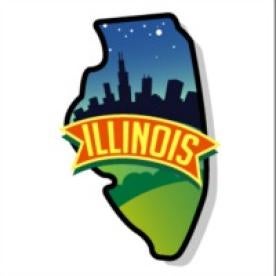

Illinois Law Firm Continues to Clog Court System with Tax-Related False Claims Act Allegations—but Proposed Legislation May Offer Relief
Wednesday, January 14, 2015
As many readers of this blog know, over the past 12 years the Circuit Court of Cook County, Illinois has been deluged with lawsuits filed by a Chicago law firm against internet retailers as a “whistleblower” under the Illinois False Claims Act. The factual support for the lawsuits comes solely from internet-based investigations, including purchases made on retailer websites. The lawsuits typically allege that the retailers have knowingly failed to collect and remit sales and use tax on some aspect of their internet sales shipped to Illinois. See 740 ILCS 175/1 et seq. Substantial damages are claimed, including up to three times the tax allegedly owed to the State, attorneys’ fees, and a penalty assessment for each tax filing that failed to disclose the tax due.
An initial wave of approximately 90 lawsuits was filed in 2003 and 2004 against retailers that did not collect Illinois tax on their internet sales. In 2011, the whistleblower firm began to file a second round of lawsuits against retailers that collected tax on their internet sales of merchandise, but not on the shipping and handling charges associated with those sales. To date, more than 200 of these “shipping and handling” tax lawsuits have been filed. Most recently, the whistleblower firm has filed claims against defendants in the liquor industry, alleging a failure to collect sales and use tax and, in some instances, the failure to remit Illinois’ gallonage tax on sales of alcohol.
The validity of these lawsuits is hotly contested. Many lawsuits have been dismissed, and at least two shipping and handling tax cases have resulted in trial rulings against the whistleblower firm and in favor of the retailer defendants. It remains to be seen how the courts will determine the viability of Relator’s most recent claims, which appear on their face to be flawed.
Many other cases, including those that raise only nuisance value damages, have been settled to avoid the cost of litigation. These settlements appear to have fueled the whistleblower firm’s continued voracious appetite for this type of litigation.
Although the State of Illinois has the right to intervene and lead the prosecution of these actions, for the past several years the Office of the Illinois Attorney General has generally declined to intervene in these actions. Unfortunately, when this occurs, the Illinois False Claims Act permits a whistleblower claimant to proceed on its own with the litigation. In almost all cases in which the State has declined to intervene, the whistleblower firm has elected to proceed on its own with its tax-related claims.
The continued activity in this area underscores the need for the Illinois General Assembly to address and pass House Bill 0074 – legislation carefully crafted, through negotiations with the Illinois Attorney General’s office, to modify the procedure for state tax-related False Claims Act litigation in Illinois. The legislation would vastly improve the current False Claims Act situation by modifying the law as follows:
If adopted, HB 0074 would conform the Illinois’ False Claims Act to some of the whistleblower requirements found in certain other states, such as New York, which require the attorney general to consult with the Department of Taxation and Finance before filing or intervening in any tax-related false claims action. See N.Y. Fin. Law §§ 187-194. Because a state’s revenue department is generally in the best position to evaluate whether a whistleblower claim based on the provisions of the state’s tax law is meritorious, requiring the whistleblower and/or the Attorney General to consult with a revenue department before proceeding on a tax-related whistleblower claim serves as an important protection against frivolous—and costly—claims.
The continued proliferation of False Claims Act lawsuits in the tax arena underscores the urgent need for the Illinois General Assembly to pass of House Bill 0074. Interested parties should contact their legislative representative, or the governor’s office, to urge the passage of the legislation in the upcoming legislative session.